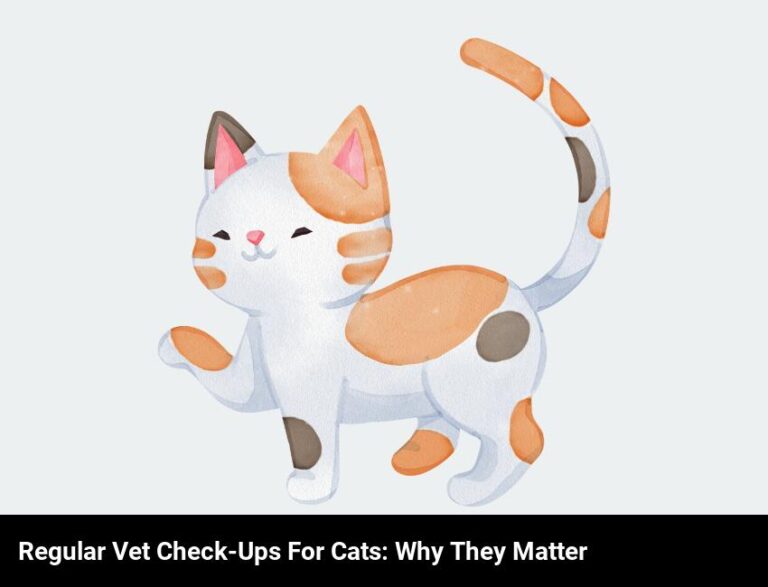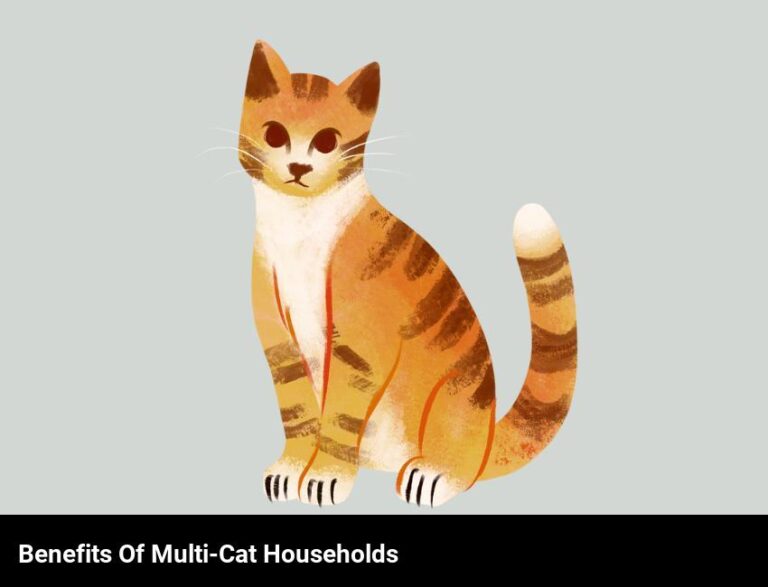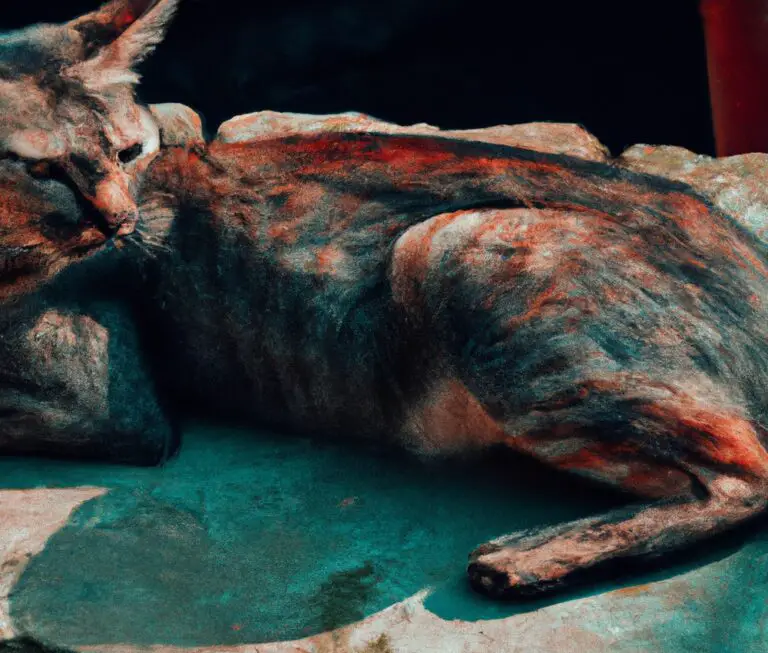Is It OK To Buy a Cat From a Breeder?
Key Takeaways:
- Buying a cat from a breeder can lead to supporting unethical breeding practices.
- Adopting a cat from a shelter helps reduce the number of homeless cats.
Are you considering getting a cat, but unsure whether it’s okay to buy one from a breeder?
Well, you’re not alone.
The topic of buying cats from breeders has stirred up quite a controversy.
Some argue that it supports responsible and ethical breeding practices, while others believe it contributes to overbreeding and neglect.
As someone who has spent years immersed in the world of cats, I understand the dilemma.
In this article, we’ll delve into the pros and cons of buying from a breeder, explore alternative options, and discuss the importance of responsible breeding practices.
So, let’s dive in and unravel the truth behind this heated debate.
| Aspect | Pros | Cons |
|---|---|---|
| Health | 1. Breeder may have performed health tests on the cat 2. Some breeders offer a health guarantee | 1. Potential for inherited health problems 2. Ethical concerns about overbreeding and genetic issues |
| Temperament | 1. Breeders can provide information about the cat’s behavior 2. May have interaction with parents or siblings | 1. No guarantee that the cat’s personality will match your expectations 2. Shelter cats can also have great temperaments |
| Breed and Appearance | 1. Ability to choose a specific breed 2. Ensures you get a cat with desired physical characteristics | 1. Limited availability for rarer breeds 2. Purebred cats may have more health issues |
| Support and Guidance | 1. Breeders can offer guidance on cat care and training 2. Some provide post-purchase support | 1. No guarantee that the breeder will provide ongoing assistance 2. Shelters and rescues also provide support for adopted cats |
Understanding cat breeders
Understanding cat breeders is essential for making informed decisions about buying a cat from one.
What is a cat breeder?
A cat breeder is someone who intentionally breeds cats to produce specific traits or characteristics.
These breeders carefully choose cats with desired traits, such as appearance or temperament, and mate them to create offspring that meet breed standards.
They may specialize in certain breeds or focus on producing healthy, well-socialized kittens.
Cat breeders play a vital role in preserving and improving different cat breeds.
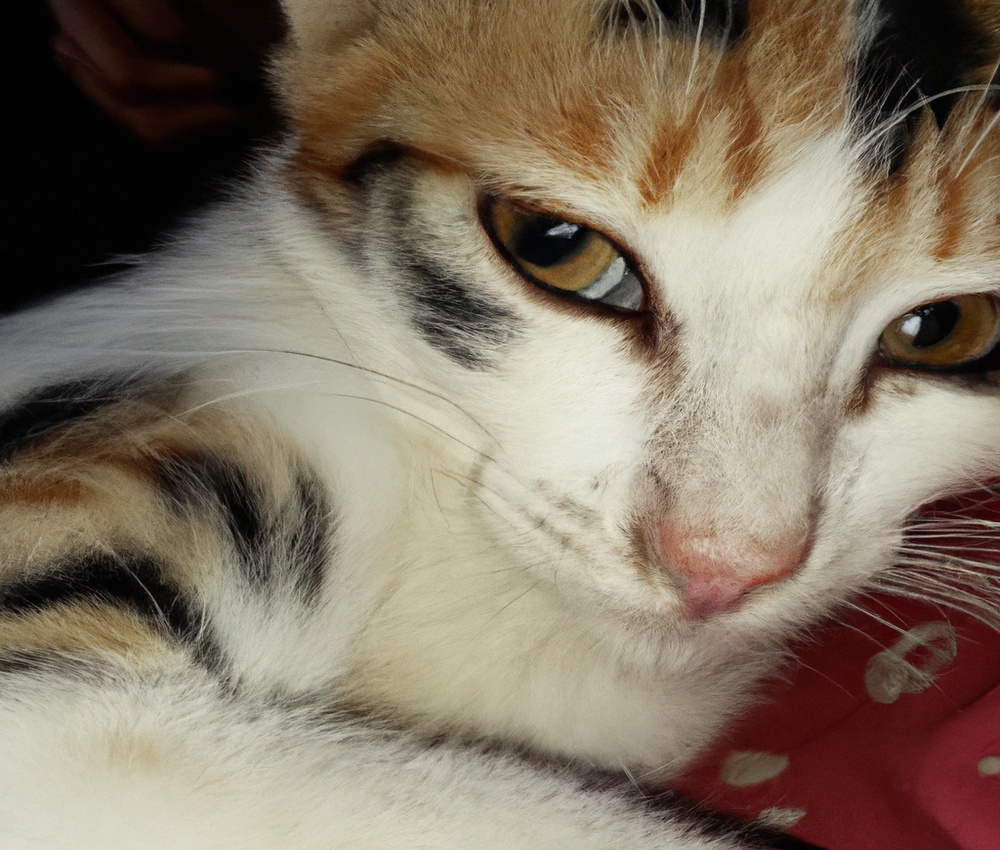
Why do people buy cats from breeders?
People buy cats from breeders for several reasons. One reason is that they may have a specific breed in mind, with specific characteristics and traits.
Some people are interested in showing their cats in competitions, and breeders can provide cats that meet the desired breed standards.
Additionally, some individuals prefer the predictability of a breed, knowing what to expect in terms of temperament and appearance. Others simply enjoy the experience of raising a kitten from a reputable breeder.

The controversy surrounding cat breeders
The controversy surrounding cat breeders arises from concerns about the welfare of cats and the ethics of breeding for profit.
Critics argue that breeding contributes to overpopulation, leading to euthanasia of shelter cats.
Some breeders may prioritize appearance over health, leading to genetic issues in certain breeds.
However, reputable breeders prioritize the well-being of their cats, ensuring proper care, socialization, and health testing.
It’s important to do thorough research and choose a responsible breeder if buying a cat.
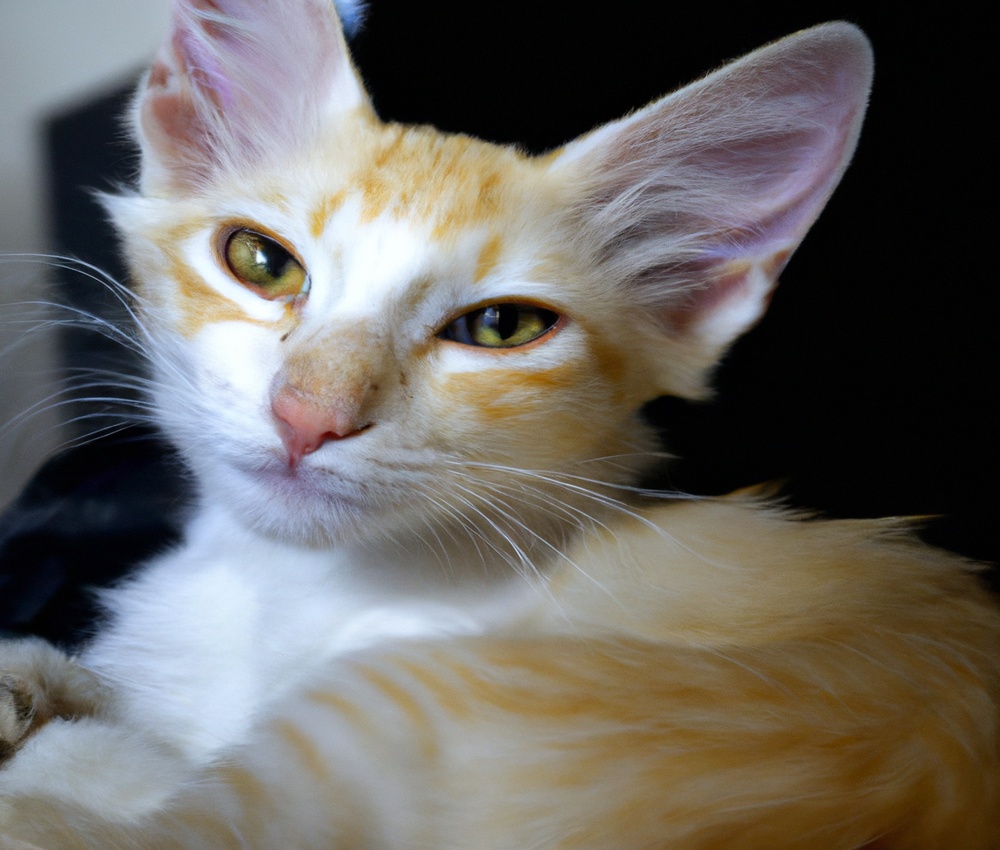
Pros and cons of buying a cat from a breeder
Pros: You can choose the specific breed and have more control over the cat’s background and traits. Cons: It can be more expensive, and there may be ethical concerns surrounding breeders.
Advantages of buying a cat from a breeder
One advantage of buying a cat from a breeder is the assurance of a known breed. You can choose a specific breed that matches your preferences in terms of appearance and temperament.
Breeder cats often come with pedigrees, providing information about their lineage and genetic history.
Additionally, breeders tend to focus on health screenings and vaccinations, ensuring that the kittens are healthy and well-cared for. Breeder cats often receive proper socialization from birth, making them more accustomed to human interaction and a better fit for families.
Disadvantages of buying a cat from a breeder
When considering buying a cat from a breeder, there are a few disadvantages to keep in mind.
Firstly, the cost can be quite high compared to adopting from a shelter.
Additionally, there may be limited breed options available, especially if you have a specific breed in mind.
Another disadvantage is that some breeders may prioritize profit over the well-being of the cats, potentially leading to health issues or genetic problems.
Finally, buying from a breeder contributes to the demand for purebred cats, which can detract from the important work of animal shelters and rescue organizations.
Alternatives to buying from a breeder
There are several alternatives to buying a cat from a breeder. You can adopt a cat from a shelter, find a reputable rescue organization, or consider a mixed-breed cat.
Adopting a cat from a shelter
Adopting a cat from a shelter can be a rewarding experience. Here are some benefits:
- Saving a life: When you adopt a cat from a shelter, you provide them with a loving home and a second chance at life.
- Variety of options: Shelters have cats of different breeds, ages, and personalities. You can find the perfect cat that aligns with your lifestyle and preferences.
- Health and vaccinations: Shelter cats are usually spayed/neutered, vaccinated, and treated for any medical issues before adoption.
- Cost-effective: Adopting from a shelter is usually more affordable than buying from a breeder. Plus, many shelters offer discounts or promotions.
- Supportive staff: Shelter staff can guide you in choosing the right cat and provide valuable advice on pet care and behavior.
- Sense of fulfillment: Knowing that you’ve given a homeless cat a loving home can bring immense joy and fulfillment.
So, if you’re considering getting a cat, consider adopting from a shelter. You’ll not only find a wonderful companion but also make a positive impact on a cat’s life.
Finding a reputable rescue organization
When looking to find a reputable rescue organization, there are a few steps you can take:
- Start by doing some research online. Look for rescue organizations in your area and read reviews or testimonials from others who have adopted from them.
- Consider reaching out to local animal shelters or veterinarians for recommendations. They may have insights on which rescue organizations have a good reputation for their care and adoption process.
- Attend adoption events or visit the rescue organization in person. This will give you a chance to meet the staff, see the facilities, and learn more about their adoption process and policies.
- Ask questions. Inquire about the rescue’s policies on spaying/neutering, vaccinations, and any medical or behavioral assessments they conduct on their cats before adoption.
- Trust your gut. If something feels off or if the rescue organization seems unwilling to provide information or answer your questions, it’s best to look elsewhere.
Considering a mixed-breed cat
Considering a mixed-breed cat can be a great alternative to buying from a breeder.
These cats are a mix of different breeds, resulting in unique characteristics and personalities.
They often have fewer health issues compared to purebred cats.
Additionally, adopting a mixed-breed cat can help reduce pet overpopulation and support animal shelters.
When considering a mixed-breed cat, visit local shelters, rescue organizations, or online adoption platforms to find your purrfect companion.
What to look for in a reputable cat breeder
When considering a reputable cat breeder, pay attention to health testing, socialization, reputation, and the adoption process.
Health testing and genetic screenings
Health testing and genetic screenings are essential when choosing a cat breeder. These tests help ensure that the cats are healthy and free from genetic disorders that could be passed on to their offspring.
Reputable breeders prioritize the health and wellbeing of their cats, and they conduct these screenings to identify any potential health issues.
When considering a breeder, ask about the health tests they perform on their cats, including genetic screenings for breed-specific conditions. It’s important to choose a breeder who takes these steps to produce healthy and genetically sound kittens.
Socialization and temperament evaluations
Socialization and temperament evaluations are crucial when choosing a cat from a breeder.
These assessments help determine if the cat has been exposed to positive experiences and is well-adjusted to different environments.
A well-socialized cat will be friendly, comfortable around people and other pets, and more adaptable to new situations.
Look for a breeder who prioritizes socialization and conducts regular temperament evaluations to ensure you’re getting a cat with a good disposition.
Breeder’s reputation and experience
When choosing a cat breeder, their reputation and experience are key factors to consider. A reputable breeder should have a positive reputation among previous buyers and fellow breeders.
Look for breeders who have been in the business for a significant amount of time, as this indicates their experience and knowledge in raising healthy and well-socialized cats.
Additionally, consider breeders who are actively involved in breed clubs and organizations, as this demonstrates their commitment to the breed and their dedication to responsible breeding practices.
Adoption process and aftercare support
Adopting a cat involves a simple process. First, research local animal shelters or rescue organizations and visit them in person to meet potential cats.
Fill out an application and discuss your preferences with the staff.
Once approved, pay an adoption fee and bring your new furry friend home. Aftercare support is crucial for a successful adoption.
Many reputable shelters provide resources like information on cat care, behavior tips, and contact details for veterinarians.
They may also offer post-adoption counseling or follow-up checks. It’s important to reach out to them if you have any concerns or need assistance with your cat’s adjustment.
Remember, adopting a cat is a long-term commitment, so be prepared to provide love, care, and a forever home for your new feline companion.
Questions to ask a cat breeder
When looking to buy a cat from a breeder, here are some important questions to ask.
Do they provide health guarantees?
Health guarantees are an important consideration when buying a cat from a breeder. A reputable breeder should provide health guarantees for their kittens, which typically cover genetic disorders and health issues that may arise within a certain timeframe.
The guarantees may vary, so it’s essential to ask the breeder about the specifics.
Having a health guarantee can give you peace of mind and ensure that you are getting a healthy cat.
Are their breeding cats well-cared for?
Are their breeding cats well-cared for? This is an important question to consider when buying a cat from a breeder.
The well-being of the breeding cats is crucial for their health and the health of the kittens they produce.
Here are some key things to look for to ensure the breeding cats are well-cared for:
- Clean and spacious living conditions: The breeding cats should have clean and comfortable living spaces with enough room to move around and exercise.
- Regular veterinary care: It is essential that the breeder takes their cats to the vet for regular check-ups, vaccinations, and necessary medical treatments.
- Proper nutrition: The breeding cats should be fed a balanced diet that meets their nutritional needs. Ask the breeder about the type of food they provide and if they offer any supplements.
- Socialization and enrichment: Breeding cats should receive proper socialization and mental stimulation. They should have opportunities to interact with humans and other cats to ensure they lead happy and well-adjusted lives.
- Breeding practices: Responsible breeders prioritize the health and well-being of their breeding cats over profit. They carefully select mates for their cats and avoid breeding animals with genetic health issues.
When considering buying a cat from a breeder, it is crucial to ensure that the breeding cats are well-cared for. By asking the right questions and observing the conditions in which the cats are kept, you can make an informed decision and support ethical breeding practices.
Can you meet the kittens and their parents?
Can you meet the kittens and their parents? Yes, when considering buying a cat from a breeder, it is essential to meet both the kittens and their parents.
This allows you to interact with the kittens and observe their behavior, as well as assess the temperament and health of the parents.
Meeting the parents can give you a good idea of what the kittens may grow up to be like. It also provides an opportunity to ask the breeder any questions you may have about the breeding process and the cats’ lineage.
What is their policy on returns or rehoming?
Their policy on returns or rehoming is an important factor to consider when buying a cat from a breeder.
Some breeders have strict policies and do not accept returns or offer rehoming services.
Others may have specific conditions or requirements for returning a cat or finding it a new home.
It’s crucial to inquire about their policy upfront to ensure you understand their expectations and responsibilities when it comes to returns or rehoming.
This will help you make an informed decision about whether buying from that breeder aligns with what you’re looking for.
The importance of responsible breeding practices
Responsible breeding practices are crucial to ensure the health and welfare of cats and to address overbreeding and genetic issues. Promoting ethical breeding standards is essential for the well-being of both the cats and the future of feline populations.
Ensuring the health and welfare of cats
Ensuring the health and welfare of cats is of utmost importance.
Here are some key ways to prioritize their well-being:
- Regular veterinary care: Schedule routine check-ups and vaccinations to catch any potential health issues early on.
- Proper nutrition: Feed your cat a balanced diet that meets their nutritional needs. Consult your vet for guidance on choosing the right food.
- Clean and comfortable environment: Provide a clean litter box, fresh water, and a cozy resting area. Regularly clean and disinfect their living space.
- Mental and physical stimulation: Engage your cat in playtime and provide toys to keep them mentally and physically active. This helps prevent boredom and promotes their overall well-being.
- Grooming and hygiene: Regularly brush your cat’s coat, trim their nails, and clean their ears to keep them clean and prevent any discomfort or infections.
- Identification and safety: Ensure that your cat wears a collar with a tag containing your contact information. Additionally, consider microchipping to increase the chances of finding them if they get lost.
Addressing overbreeding and genetic issues
Addressing overbreeding and genetic issues is crucial for the well-being of cats. Breeders should prioritize the health of the cats and not focus solely on profit.
To address overbreeding and genetic issues, breeders should:
- Conduct thorough genetic testing: This helps identify any potential genetic issues in cats before breeding them, reducing the chances of passing on harmful traits.
- Promote responsible breeding practices: Breeders should only mate cats that are genetically compatible to minimize the risk of inherited health problems.
- Limit the number of breeding cats: Overbreeding can lead to genetic problems and compromise the health of the cats. Breeders should responsibly manage their breeding program.
- Provide proper healthcare: Regular veterinary care, vaccinations, and preventive measures are essential to ensure the overall health and well-being of the breeding cats and their offspring.
By addressing overbreeding and genetic issues, we can contribute to the betterment of feline welfare and ensure that cats bred by responsible breeders have a higher chance of leading healthy and happy lives.
Promoting ethical breeding standards
Promoting ethical breeding standards is essential for ensuring the well-being and health of cats.
Breeding practices that prioritize the health and temperament of the cats, rather than just appearance, are crucial.
Responsible breeders conduct proper health screenings, provide a clean and safe environment, and actively socialize their kittens.
They also prioritize finding suitable homes for their cats, rather than solely focusing on profit.
By supporting ethical breeders, you contribute to the betterment of the feline community and help prevent issues associated with irresponsible breeding practices.
Frequently asked questions about buying cats from breeders
Are all cat breeders the same?
No, not all cat breeders are the same.
There are reputable breeders who prioritize the health and well-being of their cats, while others may prioritize profit over the welfare of the animals.
It’s important to do thorough research, visit the breeder in person, and ask questions about their breeding practices, health testing, and socialization.
Look for breeders who are registered with reputable cat associations and who provide proper care for their cats.
Remember, responsible breeding is crucial for the well-being of the cats and the overall reputation of the breeder.
How do I find a reputable cat breeder?
To find a reputable cat breeder, there are a few steps you can take.
- Research: Look for breed-specific cat clubs or associations in your area. They often have lists of reputable breeders who follow ethical practices.
- Recommendations: Ask your veterinarian or friends who own cats for recommendations. They may know of reputable breeders with good track records.
- Visit: Once you have a list of potential breeders, visit their facilities in person. Check if the cats are kept in clean and healthy conditions.
- Questions: Ask the breeder about their experience, breeding practices, and the health testing they perform on their cats. A responsible breeder should be knowledgeable and transparent.
- Health guarantees: Reputable breeders often provide health guarantees for their cats. Make sure to ask about any guarantees or warranties they offer.
Remember, finding a reputable cat breeder might take some time and effort, but it’s worth it to ensure you’re getting a healthy and well-cared-for cat.
Final Verdict
Buying a cat from a breeder can be a personal choice, but it is important to consider both the pros and cons. While breeders can provide healthy and well-socialized kittens with predictable traits, the controversy surrounding them cannot be ignored.
Alternatives such as adopting from shelters or finding reputable rescue organizations are available for those who want to give a home to a loving cat in need.
If choosing a breeder, it is crucial to evaluate their breeding practices, ask the right questions, and promote responsible breeding to ensure the welfare of cats.



